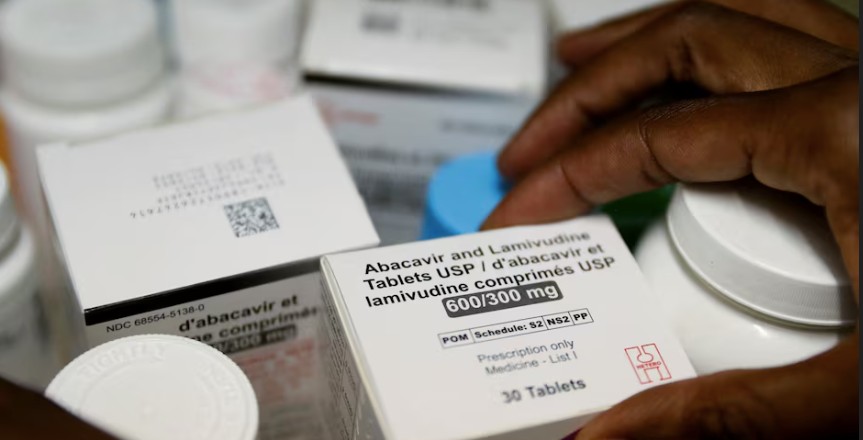US Congress spares Pepfar HIV funding in revised budget plan amid global health concerns

Since returning to office, Trump has intensified efforts to cut government spending, with the rescission bill aiming to roll back billions in previously approved funds.
US Republican senators have dropped a proposal to cut $400 million (Sh51.6 billion) from the President's Emergency Plan for AIDS Relief (Pepfar), a major US government-funded HIV/AIDS programme.
The proposed cut was part of a broader plan to slash $9 billion (Sh1.2 trillion) in government spending.
More To Read
- How Trump–Ruto health deal fills the void left after USAID exit
- 'We feel forgotten': People living with HIV decry stigma as US aid cuts bite
- Peace at risk: Counties urged to fill funding void after USAID exit
- Kenya records over 20,000 new HIV infections in 2025 as Nairobi leads in cases
- HIV is on the rise among older Africans, but care and research overlook this group – lessons from Kenya, South Africa
- WHO Africa summit urges investment to end maternal mortality
Reports show that the cuts were included in a bill that allows Congress to cancel previously approved funding, including foreign aid and allocations for public broadcasting.
The revised proposal will now be incorporated into the full bill, which must return to the House of Representatives for another vote ahead of Friday’s deadline.
Additional reports indicate that President Donald Trump supports the updated bill and is expected to sign it into law.
Pepfar, launched under President George W. Bush, is credited with saving millions of lives, especially across Africa.
Cut government spending
Since returning to office, Trump has intensified efforts to cut government spending, with the rescission bill aiming to roll back billions in previously approved funds.
A significant portion of the proposed cuts target the US Agency for International Development (USAID), which the Trump administration has moved to dismantle.
These funding reductions have already disrupted HIV/AIDS services in countries like South Africa, resulting in medicine shortages and reduced care at clinics.
The decision by US lawmakers to preserve Pepfar has been welcomed by health experts.
Professor Helen Rees, a sexual health and vaccine expert at the University of the Witwatersrand in Johannesburg, applauded the move.
"It's obviously not replacing the totality of what Pepfar was providing, but, nonetheless, it indicates a softening of the views in the US and the importance to the members of the Senate of the Pepfar programme in terms of lives saved," she told the BBC.
However, she warned that the United States' decision to suddenly pull funding from global health initiatives has posed a major risk, especially for people in lower-income countries across Africa.
Top Stories Today










































